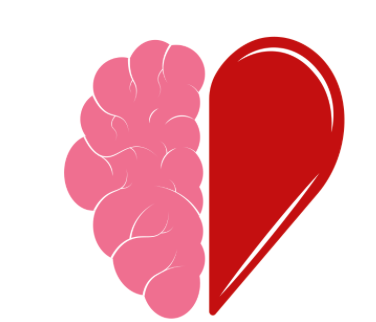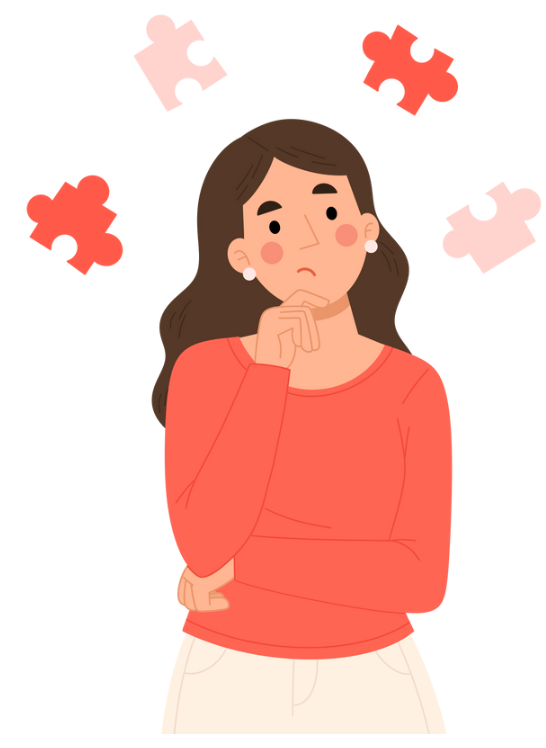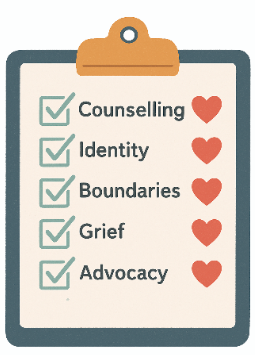How Trauma Affects the Way You Love (and How You Can Heal)
- Nada Johnson

- Aug 6, 2025
- 5 min read

When you’ve experienced trauma — whether it’s childhood neglect, emotional abuse, or a toxic relationship, it doesn’t just disappear once you’re out of the situation. Trauma has a way of finding itself into how you see yourself, how you connect with others, and how you love (Robinson, Smith and Segal, 2025)
At Nada Johnson Consulting & Counselling Services (NJCCS), I work with many women who wonder why they keep ending up in painful or one-sided relationships. Women who question if something’s wrong with them, or if they’re just “too sensitive.” The truth is, there’s nothing wrong with you. You’re simply responding in the ways that once helped you stay safe — even if those same responses now get in the way of the love and peace you deserve.
How Trauma Affects the Way You Love
When trauma happens, especially in childhood or in romantic relationships where love a

nd harm were mixed, it can deeply affect how you form emotional connections with others.
If your early experiences involved emotional neglect, inconsistency, or harm, you might struggle to feel secure in love (Novak, 2023). Trauma can lead to trouble connecting with others that show up in ways like:
💔 Fearing rejection or abandonment, leading you to cling tightly to partners.
💔 Shutting down emotionally or pushing others away when closeness feels overwhelming.
💔 Confusing chaos or intensity with love, while ignoring unhealthy behaviours
or red flags.
These aren’t flaws in your personality, they’re learned survival strategies. But while these patterns may have once protected you, they can now make it hard to feel safe, trusting, or emotionally fulfilled in relationships (TeachTrauma, n.d.).
When Survival Becomes a Love Language
Trauma often teaches you how to survive—but that survival mode doesn’t always feel safe, secure, or emotionally nourishing.
Common ways this shows up in relationships include:

🎭 People-pleasing to avoid conflict.
This is also called the “fawn response,” where you try to stay safe by pleasing others and avoiding confrontation, even if it means ignoring your own needs (Ryder, 2022).

🎭 Always suppressing your own feelings to “keep the peace.”
This often comes from a deep fear of conflict, rejection, or being seen as “too much.” If you grew up in a home where speaking up led to tension or punishment, you may have learned it felt safer to stay quiet, even if it meant ignoring how you truly feel (Baker, 2025).
🎭 Having trouble setting boundaries or saying “no.”

Trauma can make it hard to believe your boundaries are valid or will be respected. You might say “yes” out of fear of rejection, feel responsible for others’ emotions, or allow disrespect because it feels safer than speaking up (Northside Psychology, 2023)
Silencing your discomfort, doubting your instincts, or staying in painful relationships when you sense something’s wrong, can feel safer in the moment, but it often comes at the cost of your well-being and keeps you stuck in unhealthy patterns.
Why You Might Blame Yourself
If you’ve been through trauma, especially as a child, it’s common to feel guilt or shame and even to believe it was your fault. This often starts early, when children are told or made to feel they’re at fault for abuse or neglect. Without knowing any better, many internalize that blame as part of their identity (Gillis, 2024).

Sometimes self-blame becomes a way to cope. Telling yourself “It’s my fault” can feel safer than facing the fact that you had no control. But over time, this belief fuels shame, damages self-worth, and keeps you stuck (Gillis, 2024).
Healing Begins with Awareness
Healing after trauma takes time, but small, intentional steps can help you rebuild trust in yourself and create the safe, healthy connections you deserve.

❤️🩹 Practice Self-Forgiveness
Let go of the belief that you should have acted differently. In moments of trauma, you were doing what you needed to survive — whether that meant staying quiet, avoiding conflict, or trying to keep someone calm (Gilis, 2024).
❤️🩹 Reflect Without Judgment

Ask yourself: What was I feeling? What did I believe then? What support did I have? These questions can help you see that you were doing the best you could with what you knew at the time.
❤️🩹 Set Healthy Boundaries

Boundaries aren’t selfish — they’re an act of self-care. That might mean saying “no” when you’re overwhelmed, speaking up when something feels wrong, or limiting contact with people who don’t respect you. Boundaries protect your well-being, create safety, and remind you that your needs matter (Thomas, 2025).
How NJCCS Can Support You
At NJCCS, I offer a trauma-informed, non-judgmental space where you can unpack your experiences at your own pace. Whether you’re reflecting on past patterns, struggling in a current relationship, or just starting to explore what healthy love looks like, you don’t have to do it alone.
Through gentle and grounded counselling, I can help you:

🌿 Understand how your trauma impacts your relationships.
🌿 Reconnect with your emotions and learn to trust them again.
🌿 Create space for boundaries, safety, and self-respect in love.
🌿 Heal in a way that honours your pace, your voice, and your truth.
Love Shouldn’t Hurt

If love leaves you feeling anxious, confused, or questioning your worth, it’s a sign something isn’t right. Real love respects your boundaries, values your peace, and never makes you feel like you’re too much or not enough.
Whenever you’re ready, NJCCS is here to help you understand your past, support your
healing, and guide you toward relationships that feel safe, mutual, and free from harm.
✨ You deserve love that feels secure, and you don’t have to find it alone. ✨
Warm regards,

Nada Johnson, MSW, RSW
Registered Social Worker, Psychotherapist / trained Family Mediator / EMDR Trained Therapist / Certified Racial Trauma Clinician / Mental Health & Sexual Violence Consultant / Professional Speaker

🌍Website: www.nadajohnsonservices.com
📩 Contact: info@nadajohnsonservices.com
Nada Johnson Consulting & Counselling Services - Online phone and video sessions available
Village Healing Centre: 240 Roncesvalles Avenue
C: 437-887-6146
Click here to join our newsletter and follow our platforms for empowering content, trauma recovery tools, and mental health support. Please share this post to help break the silence around trauma and promote healing in our communities. 🤝
References
Gillis, K. (2024, August 9). 5 reasons why we blame ourselves after trauma. Psychology Today. https://www.psychologytoday.com/ca/blog/invisible-bruises/202405/5-reasons-why-we-blame-ourselves-after-trauma
London Trauma Therapy. (2025, March 26). Setting boundaries is essential for healing trauma. London Trauma Therapy. https://www.londontraumatherapy.com/setting-boundaries-is-essential-for-healing-trauma/
Northside Psychology. (2023, October 24). 10 tips to set healthy boundaries after trauma. Northside Psychology. https://northsidepsychology.com.au/10-tips-to-set-healthy-boundaries-after-trauma/
Novak, D. (2023). 7 ways childhood trauma can impact your relationships. Simi Psychological Group. https://simipsychologicalgroup.com/7-ways-childhood-trauma-can-impact-your-relationships/
Robinson, L., Smith, M., & Segal, J. (2025, May 20). Coping with emotional and psychological trauma. HelpGuide. https://www.helpguide.org/mental-health/ptsd-trauma/coping-with-emotional-and-psychological-trauma
Ryder, G. (2022, January 10). Fawn response: How trauma shapes people‑pleasing. Psych Central. https://psychcentral.com/health/fawn-response
Soar with Mary Baker. (2025, February 10). The cost of keeping the peace: Why we excuse unhealthy behavior. Soar with Mary Baker. https://www.soarwithmarybaker.com/the-cost-of-keeping-the-peace-why-we-excuse-unhealthy-behavior/
TeachTrauma. (n.d.). Trauma’s impact on attachment. TeachTrauma. https://teachtrauma.com/information-about-trauma/traumas-impact-on-attachment/

Want More Support for Your Professional & Personal Growth?
🔷Try Potential Unlocked™
In addition to counseling, NJCCS offers coaching through our sister brand, Potential Unlocked™, designed specifically for professional women navigating career, leadership, and life transitions.
We support clients with:
Communication and conflict strategy in the workplace
Career development and leadership coaching
Navigating workplace dynamics and burnout recovery
Building confidence in both personal and professional relationships (Online dating empowerment coaching, because personal growth impacts professional life too!)
👉 Visit www.potentialunlocked.ca to learn more or book a free 10-minute consultation call.




Comments